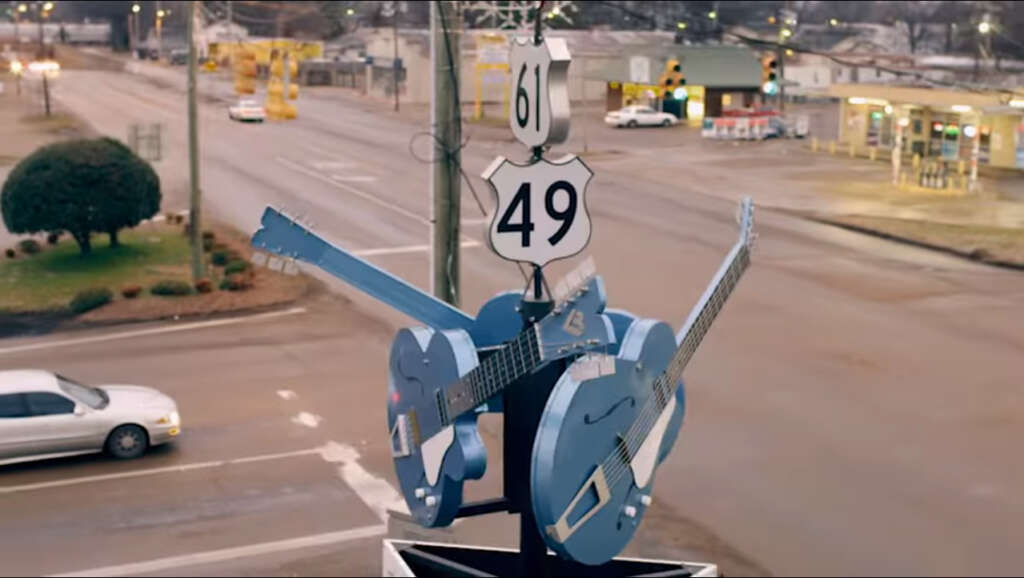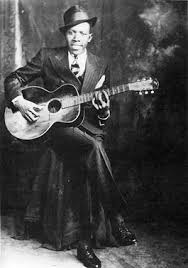Stories of the Blues

by Noah Patton
Mississippi is a state renowned for diverse and abundant musical history, widely known as the home of the blues. A sub-genre of blues, the Delta blues, even spawned from an area in the state.
It’s a state also known for the legends around its famous singers. Here’s the legend of Robert Johnson.
The story goes that Robert Johnson (May 8, 1911 – Aug 16, 1938) exchanged his soul for his un-equalled ability on the guitar.

In 1930 when he was only 19, he was said to have walked into a juke-joint in which Son House and Willie Brown were playing that night. When they were breaking between sets he went onto the stage, picked up a guitar, and started strumming. Only problem was he couldn’t play at all, and neither the crowd nor the establishment wanted to listen to him play. It didn’t take long before he was kicked out, and after that night he wasn’t seen in the Mississippi Delta for a long time. He had vanished.
Robert Johnson returned a year later, an unusual 7-stringed guitar was strapped to his back as he confidently walked into another juke joint – House and Brown were playing again that night. They mocked Johnson openly, House laughing as he said, “Boy, now where are you going with that thing? To noise somebody to death again?”. Then Johnson took out the guitar and played. His skills were incomparable to the time he showed a year ago. He seemed to have formed a style of his own and he wasn’t just good, he was great.
People could hardly believe he had improved this much in such a short period of time, they started to whisper of supernatural intervention. They began to whisper of a dirt crossroad near Dockery Farms. He walked down that road with a near broken guitar across his back. He knelt in that crossroad and waited until midnight, when a large dark figure appeared above him. He offered the shadowy figure his guitar. The figure began to tune it, and as he went to hand the guitar back to Johnson it warned him. If he took the guitar back he would be able to play it as if he had practiced with it for hundreds of years, he would know techniques that no living man knew, but it would come at a price. Johnson had to give up his soul.
The truth of the matter is Johnson spent that year away looking for his father, but instead he found a mentor, Isaiah Zimmerman. Zimmerman taught Johnson how to play, and Johnson took to practicing voraciously. They would practice at night, out in an old cemetery. Zimmerman would say, ““No matter how bad you sound out here, nobody is going to complain”.
Johnson had a short, but legendary life. Johnson wrote 29 songs, a small number for most musicians, but in those 29 songs he redefined blues. Eric Clapton would later say “As soon as I heard Johnson play boogie on things like When You Got A Good Friend and Ramblin’ On My Mind, I immediately understood where a lot R&B grooves originated. Nobody else from that period – not Son House, not Charlie Patton, not Blind Lemon Jefferson – played anything like that.”
Johnson would write songs to propagate the legend around his talent, namely “Cross Road Blues”, and his death seemed to confirm to believers of the tale that he truly had sold his soul to the devil. In reality, he had angered an owner of an establishment he was playing at, the owner poisoned his drink with mothballs. It irritated his stomach ulcer, causing him to cough up blood and eventually die.
Now that’s the blues.

